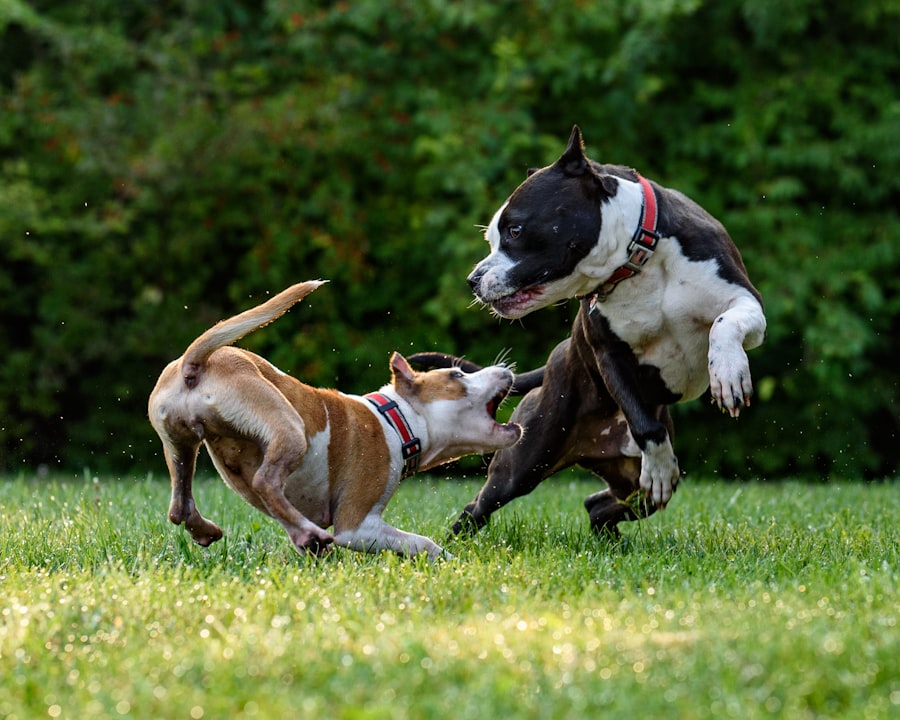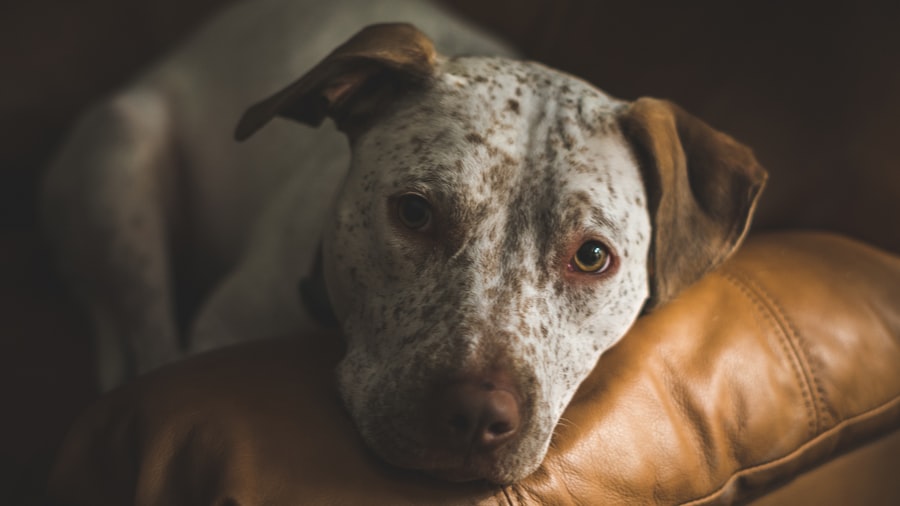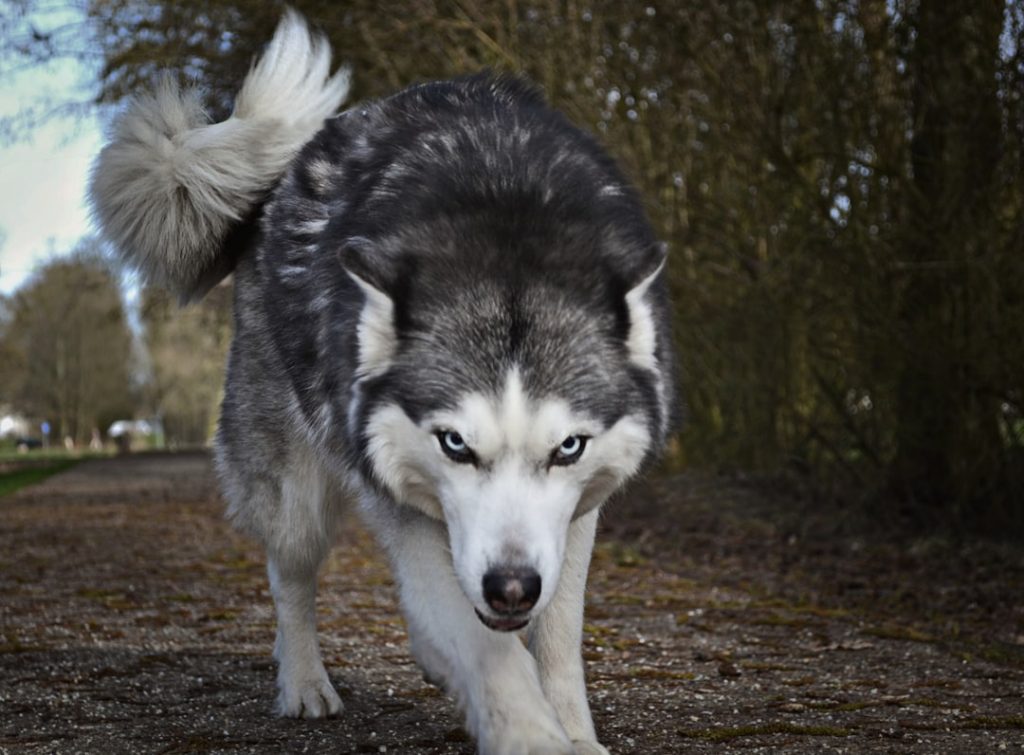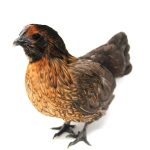Understanding the behavior of a dog exhibiting aggression towards chickens is essential for addressing the issue effectively. Aggression in dogs can stem from various factors, including fear, territorial instincts, or predatory drive. Observing the dog’s body language and behavior around chickens can help determine the underlying cause of aggression.
For instance, stiff body posture, raised hackles, and intense staring may indicate a predatory drive, while cowering or avoiding eye contact may suggest fear-based aggression. Breed characteristics and history can provide valuable insights into a dog’s behavior towards chickens. Some breeds have been selectively bred for hunting or herding, which can influence their natural inclination to chase or prey on smaller animals.
Additionally, considering the dog’s past experiences and socialization with chickens can help explain its behavior. Negative encounters with chickens may have led to the development of aggressive behavior. Recognizing triggers that provoke aggressive behavior is crucial.
Dogs may react aggressively towards chickens in response to specific stimuli, such as sudden movements, loud noises, or proximity to the chickens’ territory. Identifying these triggers can help pet owners anticipate and manage the dog’s behavior more effectively. Understanding the dog’s threshold for arousal and aggression can guide the implementation of appropriate training and management strategies to prevent confrontations with chickens.
By gaining a comprehensive understanding of the dog’s behavior, triggers, and underlying causes of aggression, pet owners can take proactive measures to address the issue and create a safer environment for both the dog and the chickens.
Table of Contents
- 1 Protecting the Chickens
- 2 Training the Dog
- 3 Seeking Professional Help
- 4 Creating a Safe Environment
- 5 Monitoring the Dog’s Behavior
- 6 Rehoming the Dog
- 7 FAQs
- 7.1 What should I do if my dog keeps attacking our chickens?
- 7.2 How can I prevent my dog from attacking our chickens?
- 7.3 Is it normal for a dog to attack chickens?
- 7.4 Can a dog be trained to coexist peacefully with chickens?
- 7.5 What are the potential consequences of not addressing a dog’s aggression towards chickens?
Key Takeaways
- Understanding the behavior of the dog is crucial in addressing the issue of aggression towards chickens.
- Protecting the chickens by keeping them in a secure coop or fenced area can prevent potential harm from the dog.
- Training the dog using positive reinforcement techniques can help redirect its behavior and prevent future attacks on the chickens.
- Seeking professional help from a certified dog trainer or behaviorist can provide expert guidance in addressing the dog’s aggression towards chickens.
- Creating a safe environment by supervising interactions between the dog and chickens can prevent any potential harm while working on behavior modification.
- Monitoring the dog’s behavior closely and consistently can help track progress and address any setbacks in its behavior towards the chickens.
- Rehoming the dog may be a last resort if all other methods have been exhausted and the safety of the chickens cannot be guaranteed.
Protecting the Chickens
Safety through Secure Housing
One effective strategy to safeguard chickens from aggressive dogs is to provide secure housing for the chickens. This can be achieved by building a sturdy coop or enclosure that is inaccessible to the dog. By preventing direct contact between the dog and the chickens, the likelihood of aggressive encounters is significantly reduced. Additionally, equipping the coop with strong locks and barriers can further enhance the chickens’ protection from potential threats posed by the aggressive dog.
Supervision and Management
Another crucial aspect of protecting the chickens involves supervising their interactions with the dog and implementing strict management protocols. Pet owners can establish designated times for allowing the dog and chickens to be in the same area under close supervision. This can help prevent unsupervised confrontations and enable pet owners to intervene promptly if any signs of aggression are displayed by the dog. Furthermore, using visual barriers or deterrents, such as fencing or motion-activated alarms, can help create separation between the dog and the chickens, reducing the risk of aggressive behavior towards them.
Redirecting the Dog’s Focus
In addition to physical barriers and supervision, providing enrichment and distractions for the dog can also contribute to protecting the chickens. Engaging the dog in mentally stimulating activities, such as interactive toys or training exercises, can redirect its focus and energy away from the chickens. This can help alleviate boredom and reduce the likelihood of predatory behavior towards the chickens. By implementing these protective measures, pet owners can effectively safeguard their chickens from potential harm caused by a dog exhibiting aggression towards them.
Training the Dog

Training is a fundamental aspect of addressing aggression in dogs towards chickens and plays a crucial role in modifying their behavior. Positive reinforcement training techniques can be used to teach the dog alternative behaviors and reshape its response to the presence of chickens. One effective approach is to use desensitization and counterconditioning methods to gradually acclimate the dog to the sight, sound, and scent of chickens in a controlled and positive manner.
This involves exposing the dog to increasingly closer proximity to chickens while pairing it with rewards, such as treats or praise, to create positive associations with their presence. Furthermore, teaching basic obedience commands to the dog can help establish control and improve its responsiveness to cues in situations involving chickens. Commands such as “leave it,” “stay,” and “come” can be valuable tools for managing the dog’s behavior around chickens and redirecting its focus when necessary.
Consistent training and reinforcement of these commands can empower pet owners to effectively intervene and prevent potential aggressive incidents towards the chickens. In addition to training exercises, providing outlets for the dog’s natural instincts through structured activities can also contribute to addressing its aggression towards chickens. Engaging in activities such as scent work, agility training, or interactive play can help channel the dog’s energy in a positive direction and reduce its fixation on chasing or preying on chickens.
By incorporating training and enrichment activities into the dog’s routine, pet owners can work towards modifying its behavior and fostering a harmonious coexistence with their chickens.
Seeking Professional Help
Seeking professional help from a qualified animal behaviorist or certified dog trainer can be invaluable in addressing aggression in dogs towards chickens. These professionals have specialized knowledge and experience in assessing and modifying aggressive behavior in dogs, providing pet owners with expert guidance and support throughout the process. A professional behaviorist or trainer can conduct a thorough evaluation of the dog’s behavior and develop a customized behavior modification plan tailored to its specific needs and triggers.
Moreover, professional assistance can offer pet owners valuable insights into understanding the underlying causes of the dog’s aggression towards chickens and implementing effective strategies for behavior modification. This may involve identifying any underlying anxiety or fear-based issues that contribute to the aggression and developing targeted interventions to address these concerns. Additionally, a professional behaviorist or trainer can provide hands-on guidance in implementing training exercises, management protocols, and environmental modifications to create a safer and more harmonious dynamic between the dog and chickens.
Furthermore, seeking professional help can also provide pet owners with ongoing support and resources to monitor progress and make adjustments as needed. A behaviorist or trainer can offer guidance on how to interpret the dog’s body language and responses around chickens, enabling pet owners to proactively manage its behavior and prevent potential conflicts. Additionally, they can offer recommendations for continued training and enrichment activities to maintain positive behavioral changes in the long term.
By enlisting professional help, pet owners can access expert knowledge and guidance to effectively address their dog’s aggression towards chickens and promote a safe and peaceful environment for all involved.
Creating a Safe Environment
Creating a safe environment for both the dog and chickens is essential in managing aggression and preventing potential conflicts. This involves implementing environmental modifications that minimize opportunities for aggressive encounters and promote positive interactions between the two animals. One effective strategy is to establish separate living areas for the dog and chickens, ensuring that they have distinct spaces where they can coexist without direct contact.
This can help reduce tension and potential triggers for aggressive behavior while allowing both animals to have their own designated territories. Additionally, implementing physical barriers such as fencing or enclosures can create separation between the dog and chickens, reducing the risk of confrontations. Ensuring that these barriers are secure and well-maintained is crucial in preventing any unauthorized access or breaches that could lead to aggressive incidents.
Furthermore, providing environmental enrichment for both the dog and chickens, such as toys, perches, or hiding spots, can help alleviate boredom and reduce stress, contributing to a more harmonious cohabitation. In addition to physical modifications, creating a safe environment also involves addressing any potential stressors or triggers that may contribute to aggressive behavior in the dog. This may include minimizing exposure to loud noises, unfamiliar animals, or high-traffic areas that could provoke anxiety or arousal in the dog.
By identifying and mitigating these stressors, pet owners can create a calmer and more predictable environment that supports positive interactions between the dog and chickens. By implementing these environmental modifications, pet owners can promote a safe and harmonious living space for both their dog and chickens while minimizing opportunities for aggressive behavior.
Monitoring the Dog’s Behavior

Observing Interactions and Body Language
Monitoring the dog’s behavior around chickens is crucial in assessing progress, identifying potential triggers, and intervening proactively to prevent aggressive incidents. Regular observation of the dog’s interactions with chickens can provide valuable insights into its responses, body language, and overall demeanor in their presence. This can help pet owners gauge any changes in behavior or emotional state that may indicate heightened arousal or potential signs of aggression.
Recognizing Subtle Cues and Triggers
Monitoring the dog’s behavior involves being attentive to any subtle cues or triggers that may precede aggressive reactions towards chickens. This may include paying attention to specific stimuli or environmental factors that elicit heightened alertness or tension in the dog. By recognizing these early warning signs, pet owners can take preemptive measures to redirect the dog’s focus or remove it from potentially triggering situations before aggression escalates.
Utilizing Technology for Enhanced Oversight
In addition to direct observation, utilizing technology such as video monitoring or motion-activated cameras can provide an additional layer of oversight in monitoring the dog’s behavior around chickens. This can offer pet owners valuable insights into their interactions when they are not present and enable them to identify any patterns or triggers that may contribute to aggressive behavior.
Rehoming the Dog
In some cases, despite efforts to address aggression towards chickens through training and management strategies, rehoming the dog may be considered as a last resort option for ensuring the safety of both animals involved. Rehoming should be approached with careful consideration of all available options and ethical considerations regarding the welfare of both animals. If rehoming is deemed necessary, it is important to prioritize finding a suitable new home where the dog’s needs can be met without posing a risk to other animals.
When exploring rehoming options for a dog exhibiting aggression towards chickens, it is essential to seek out reputable rescue organizations or experienced individuals who have expertise in working with dogs with behavioral challenges. These organizations or individuals should have a thorough understanding of canine behavior and be equipped to provide appropriate care, training, and management for dogs with specific needs related to aggression towards other animals. Additionally, transparent communication about the dog’s behavioral history and any specific requirements for its care should be provided to potential adopters to ensure that they are well-informed about what is involved in caring for a dog with a history of aggression towards chickens.
This includes disclosing any known triggers or management protocols that have been effective in minimizing aggressive behavior. Ultimately, rehoming a dog should be approached with careful consideration of all available options for addressing its aggression towards chickens before making this decision. It is important to prioritize finding a safe and suitable new home where the dog’s needs can be met without posing a risk to other animals while also ensuring that appropriate support is provided throughout this transition process.
In conclusion, addressing aggression in dogs towards chickens requires a comprehensive understanding of canine behavior, proactive measures to protect the welfare of both animals involved, targeted training interventions, seeking professional assistance when needed, creating a safe environment through environmental modifications, vigilant monitoring of behavior around chickens, and considering rehoming as a last resort option when necessary. By approaching this issue with patience, empathy, and informed decision-making, pet owners can work towards fostering a harmonious coexistence between their dogs and chickens while prioritizing their safety and well-being.
If you’re struggling with a dog attacking your chickens, you may want to consider improving the security of your chicken coop. Poultry Wizard has a helpful article on the importance of the floor of the chicken coop, which can provide valuable tips on how to keep your chickens safe from predators like dogs. Check it out here.
FAQs
What should I do if my dog keeps attacking our chickens?
If your dog is attacking your chickens, it is important to take immediate action to prevent further harm. You can start by separating the dog from the chickens and seeking professional help from a dog trainer or behaviorist to address the issue.
How can I prevent my dog from attacking our chickens?
To prevent your dog from attacking your chickens, you can consider training your dog to respect the chickens and their space. Additionally, you can use physical barriers such as fences or enclosures to keep the dog separated from the chickens.
Is it normal for a dog to attack chickens?
While some dogs may have a natural prey drive towards smaller animals like chickens, it is not considered normal or acceptable behavior. It is important to address and correct this behavior to ensure the safety of your chickens and other animals.
Can a dog be trained to coexist peacefully with chickens?
Yes, with proper training and supervision, many dogs can be taught to coexist peacefully with chickens. This may involve desensitization training, positive reinforcement, and consistent management of the dog’s behavior around the chickens.
What are the potential consequences of not addressing a dog’s aggression towards chickens?
If a dog’s aggression towards chickens is not addressed, it can lead to injury or death of the chickens, as well as ongoing stress and conflict within the household. Additionally, it may result in legal consequences if the dog harms someone else’s livestock.
Meet Walter, the feathered-friend fanatic of Florida! Nestled in the sunshine state, Walter struts through life with his feathered companions, clucking his way to happiness. With a coop that’s fancier than a five-star hotel, he’s the Don Juan of the chicken world. When he’s not teaching his hens to do the cha-cha, you’ll find him in a heated debate with his prized rooster, Sir Clucks-a-Lot. Walter’s poultry passion is no yolk; he’s the sunny-side-up guy you never knew you needed in your flock of friends!







